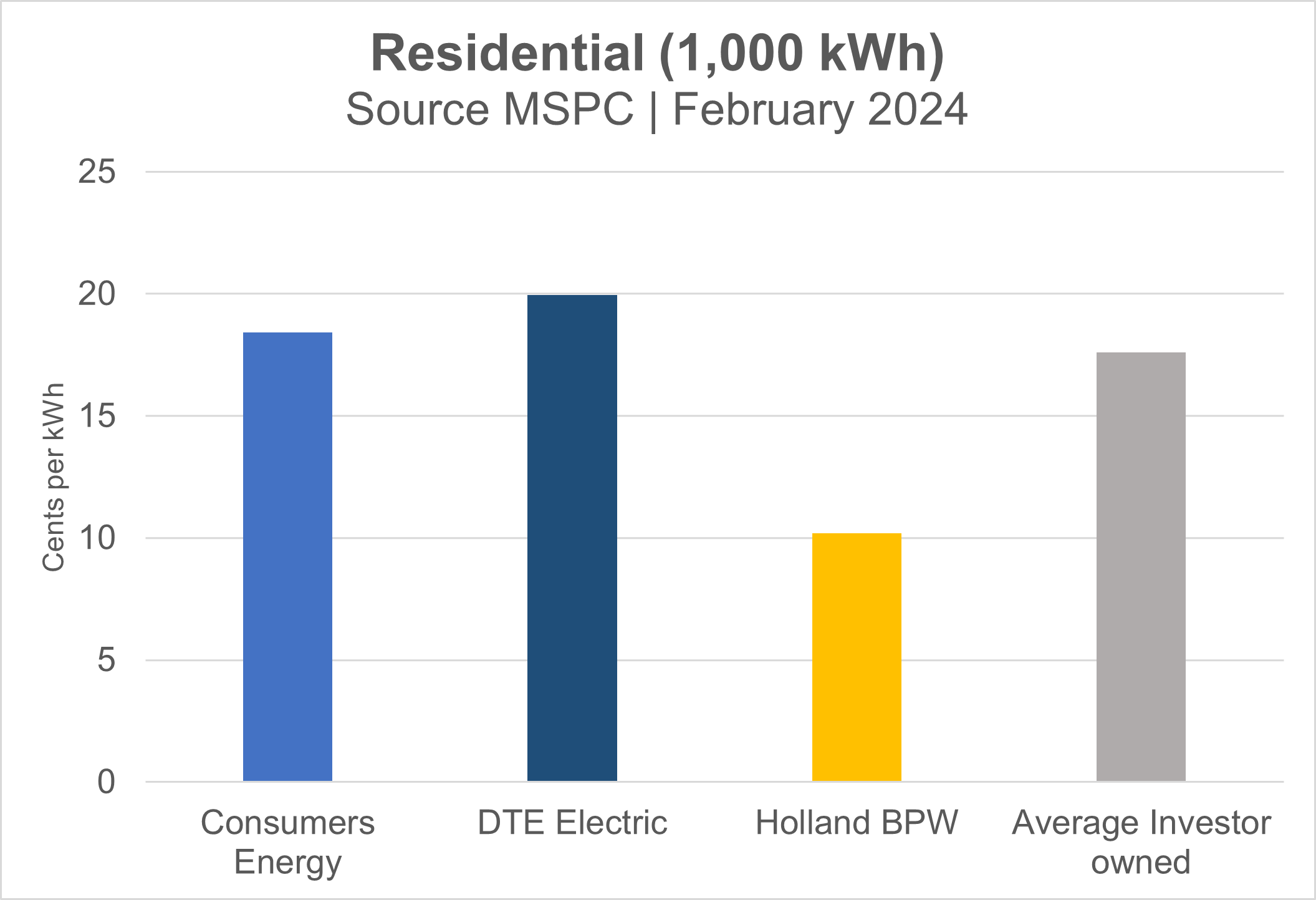Why 2 Gbps?
At last week’s City Council meeting, Ward 3 Councilwoman Bylnda Sól asked some good questions about why there isn’t a lower priced plan for low-income residents. That’s something I’ve hoped for over the years too, so let’s look at why BPW picked the plans they did, and what could be done to help those who can’t afford it.
As a reminder, the base Holland City Fiber plan is 2 Gbps (2,000 Mbps) for $45/month. That’s pretty amazing, especially since those are speeds way better than anything in Holland today. But that’s still higher than some of our neighbors pay. Logic suggests that you could offer a lower-speed tier for cheaper. Maybe 100 Mbps for $10, or a 10 Mbps free tier? The reasons this doesn’t work are: hardware, installation cost, and BPW’s operating model.
Hardware
BPW looked at the current state of network hardware and found a sweet spot with hardware that will both last into the future and be cost-effective today. They’re building the network to support 10 Gbps service right away, but the hardware for each customer is a lot more expensive at that speed. By offering a 2 Gbps tier, they bring hardware costs down while making it easy to upgrade anytime. BPW builds in periodic hardware replacement into their pricing, so they can keep improving the network over time. Remember, with fiber you don’t need to run new fiber to improve speed, just swap out network hardware at each end. As those costs drop, faster speeds will be possible.
Installation Cost
It costs money to run fiber to your house. The city split up this cost, by having the millage cover the cost of the “passings” (past every house). That leaves the “drop” (nearby pole to your house) and that cost is built into the monthly fee, as is the equipment you get (wi-fi-enabled router), and other costs such as customer service, repairs, etc. The $45 cost covers all of that.
Operating Model
Which brings us to BPWs operating model. They’re very good at providing a reliable service at the lowest cost possible (they are a non-profit, City-owned utility after all). They aren’t good at subsidies. The current pricing reflects what will cover their costs with an estimated 31-51% take rate (that percent of households signing up) after 3 years.
If they wanted to have a lower-priced tier, they’d have to find a way to subsidize those customers, likely by raising prices on other customers. That’s not the business BPW is in. Even for their electric customers, they don’t provide subsidies (though they do steer customers to local agencies & non-profits that can help).
So how else could we help lower costs?
The federal government has long had a program called the Affordable Connectivity Program, or ACP that offered a $30/month subsidy for qualifying low-income customers. Unfortunately, that’s currently scheduled to end this spring. Congress is currently fighting over funding it further, but no replacement program is in sight yet.
BPW also won’t use funds from the electric or water utilities to subsidize broadband. Which is why the only subsidy so far has come from the City (millage to pay for passings).
The City or State could also come up with another subsidy program if the feds don’t. As of now, there are no discussions at either level that I’m aware of.
Finally, there are still other ISPs in Holland and they aren’t going away. If residents have a lower-cost solution that works, they can and should keep it.
One thing that would definitely lower BPW’s rates is making Holland City Fiber more successful than planned. BPW reviews their rates every year. While I wouldn’t expect any change for 3 years at least, if their “take rate” numbers are higher than 51% it would be likely that rates could come down (ignoring inflation or outside factors). BPW’s electric rates are very low because they follow the same model.

I think councilwoman Sól’s concerns are valid. We have residents who won’t be able to take advantage of this great new system at home. The easiest thing to do is hope Congress approves a restart of the ACP, but that’s far from certain. Will other options appear? Should they? We’ll wait to see.

